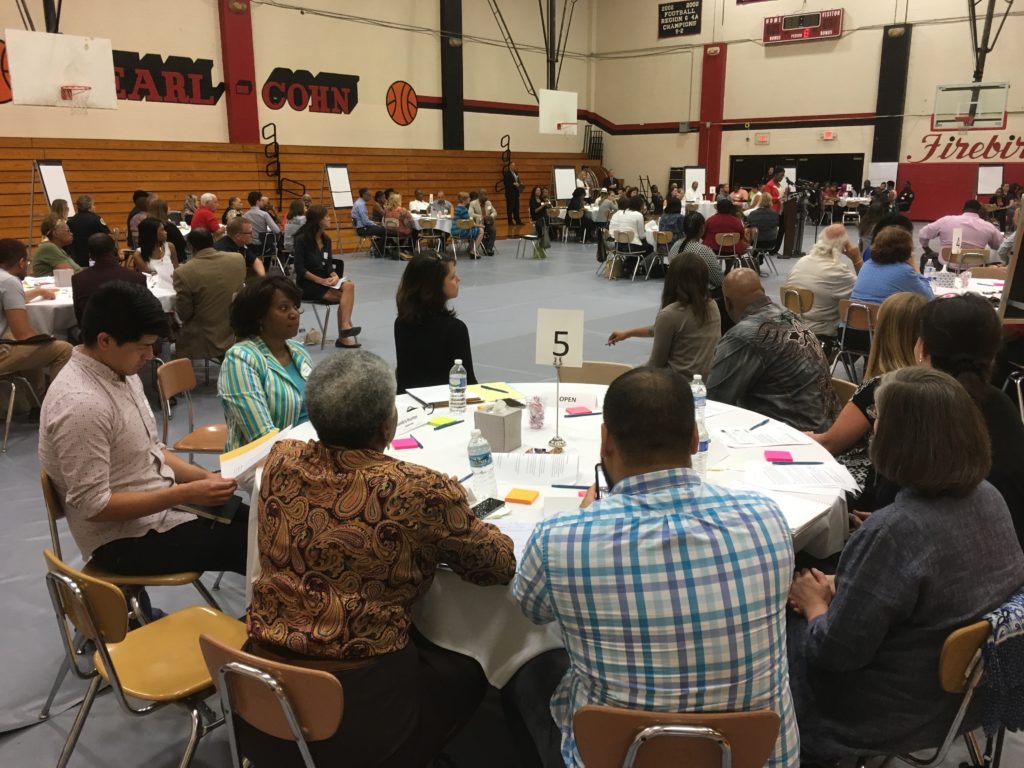
A hand-picked group of 150 people sat in the Pearl Cohn High School gym Saturday afternoon, a dozen to each table. There, in the heart of Nashville’s African-American community, prosecutors, pastors and community activists shared their feelings on race and policing. And what they said revealed fear on the part of both African-Americans and police.
One attendee was Sandra Hunter, a licensed counselor who said she has experienced systemic racism in her profession. But she said she didn’t fully understand the Black Lives Matter movement until the police shooting of Philando Castile in Minnesota, where the aftermath was live-streamed.
“At first, I was saying ‘All Lives Matter,’ ” she said. “But it’s deeper. Maybe police officers are killing African-American men because they see them as a threat.”
Hunter said she’s come to believe police need to be “reprogrammed” to bring equal force no matter the skin color.
At the Pearl Cohn meeting, Metro Police sent dozens of officers to provide security, which some participants said was overkill. But some officers participated in the small groups and shared that the recent killings of police have also heightened the emotions involved in doing their jobs.
Ministers spoke of anxieties anytime they get a call from a parishioner, fearful that someone has been injured or killed in a traffic stop.
“We need to continue to hear this,” Davidson County district attorney Glenn Funk said. “I cannot hear it often enough.”

Black Lives Matter representatives were invited but spent most of the time outside in protest, saying over a bullhorn that the police department should be de-funded.
Mayor Megan Barry, whose office organized the dialogue session, dismissed the idea of cutting police budgets and signaled her support for law enforcement.
“Clearly what we are listening to are the folks that are in the room that want to actually have a constructive conversation,” she said. “I want to be surrounded by people who actually want to move the conversation.”
Saturday’s session was meant to be a starting point, according to leaders of the meeting. One facilitator said, “We’re not going to atone for 400 years of horror in four hours.”
A conversation on race and policing that is open to the public has been scheduled for Sept. 10 from 1-4 p.m. at the Music City Center.


